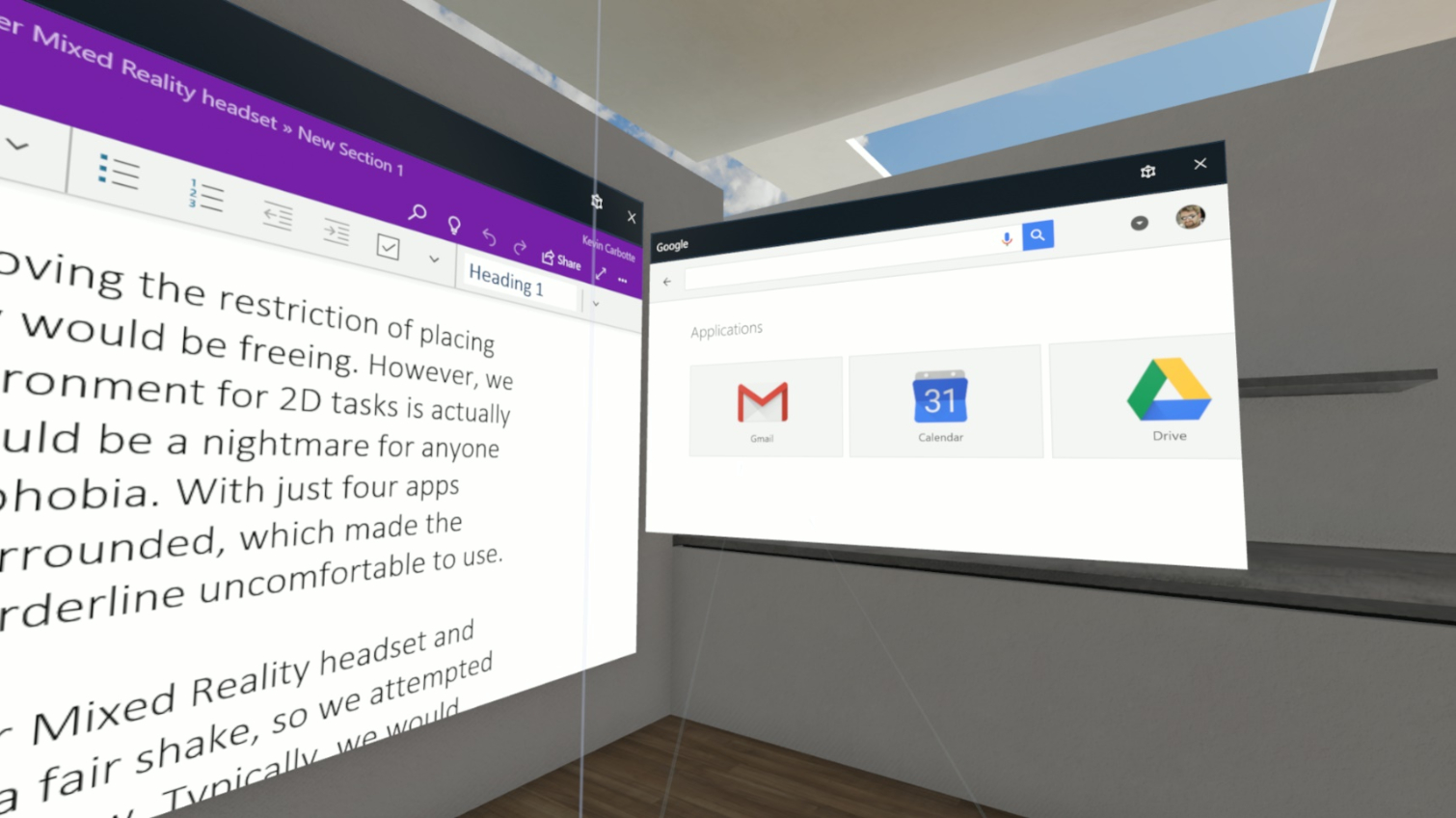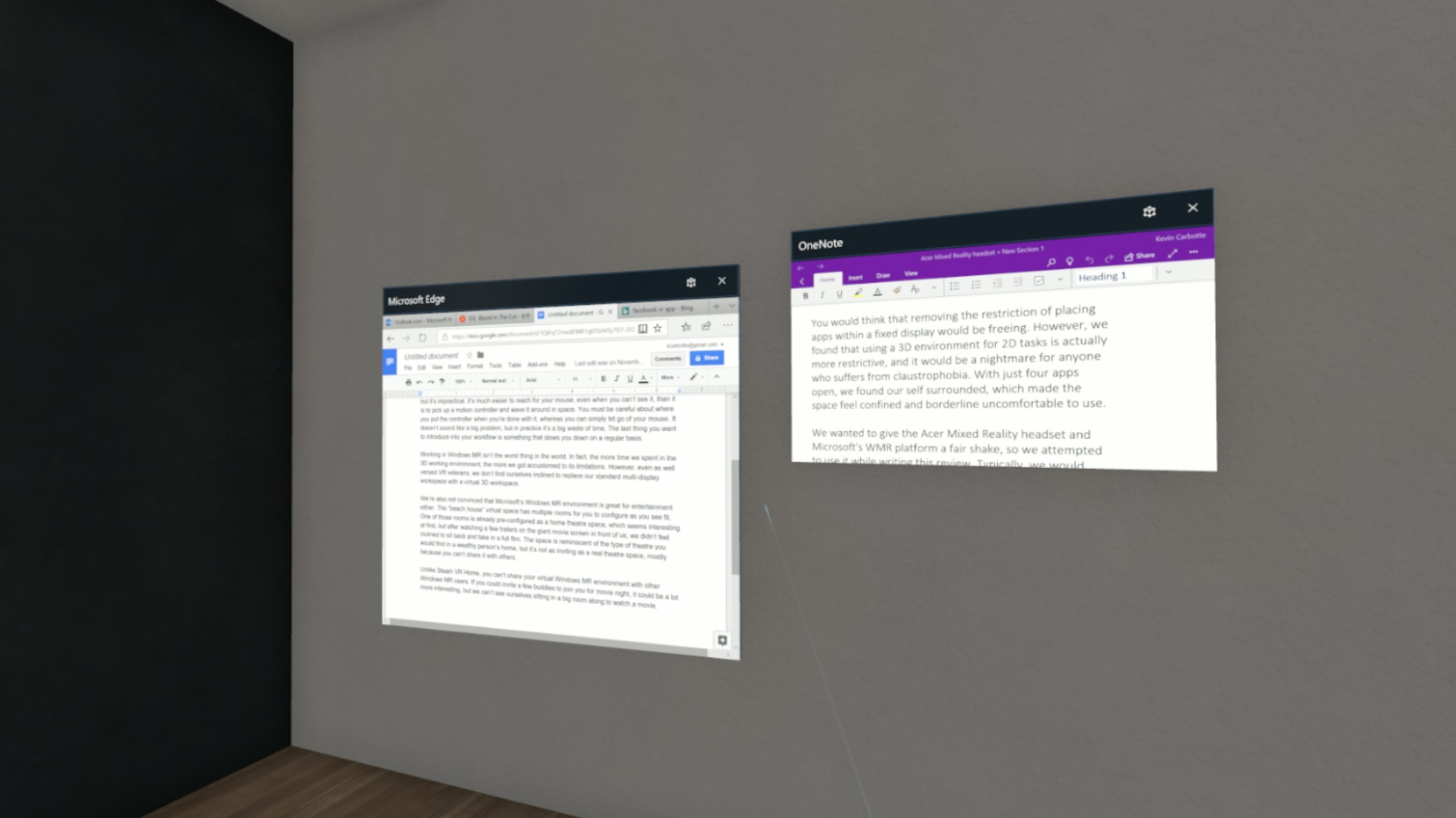Acer Windows Mixed Reality HMD Review
Why you can trust Tom's Hardware
What You Can (And Can’t) Do With Windows Mixed Reality
Microsoft believes that the Windows Mixed Reality platform will attract those who want to bring their working environment into the virtual world. At least initially, though, the company is more focused on gamers. It recently released Windows Mixed Reality for SteamVR in Early Access on Steam, which gives WMR headsets access to the vast content library on Valve’s VR platform.
There aren’t many games in the Microsoft Store that support WMR yet. However, after speaking with two of the developers who brought games to the WMR platform, we’re confident that list will grow rapidly.
In particular, Trevor Blom, Vertigo Games’ lead programmer, told us that bringing Skyworld and Arizona Sunshine to Windows MR was almost as easy as checking a box in Unity and compiling a new build. The inputs and functionality of Microsoft’s platform translate well from the Rift and Vive.
Space For Entertainment & Productivity
Inside the Beach House, four loosely segregated sections allow you to set up different work spaces. The one directly ahead as you enter the building is for casual Web surfing. On one wall, you find an Edge browser window. On the other side, there's a bench for sitting as you browse.
To the left of this room is an entertainment room, which has a virtual seating area and a giant display for watching movies. Microsoft configures the theater screen to launch its rental service. Here, you can watch trailers and pay for feature-length films.
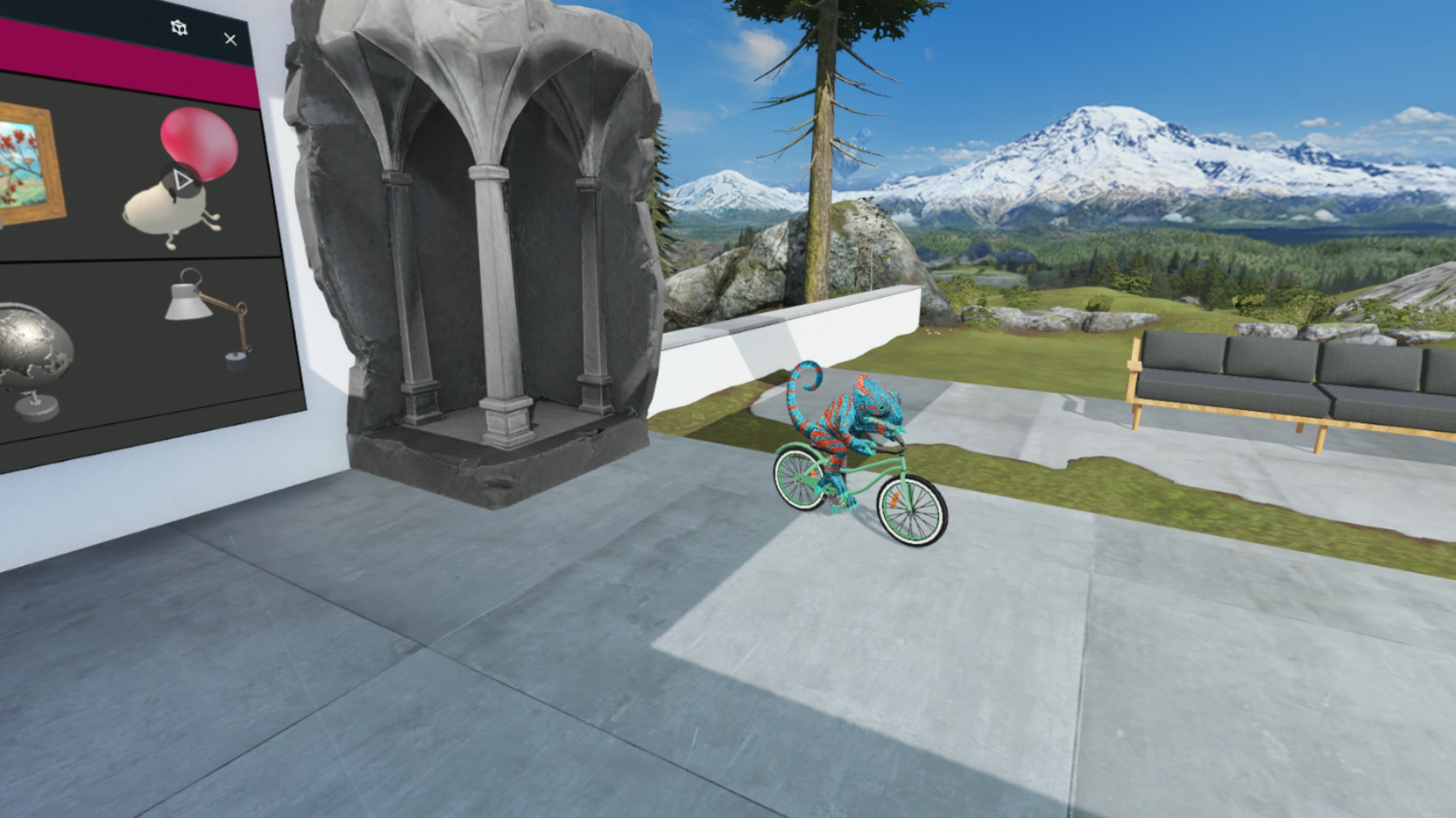
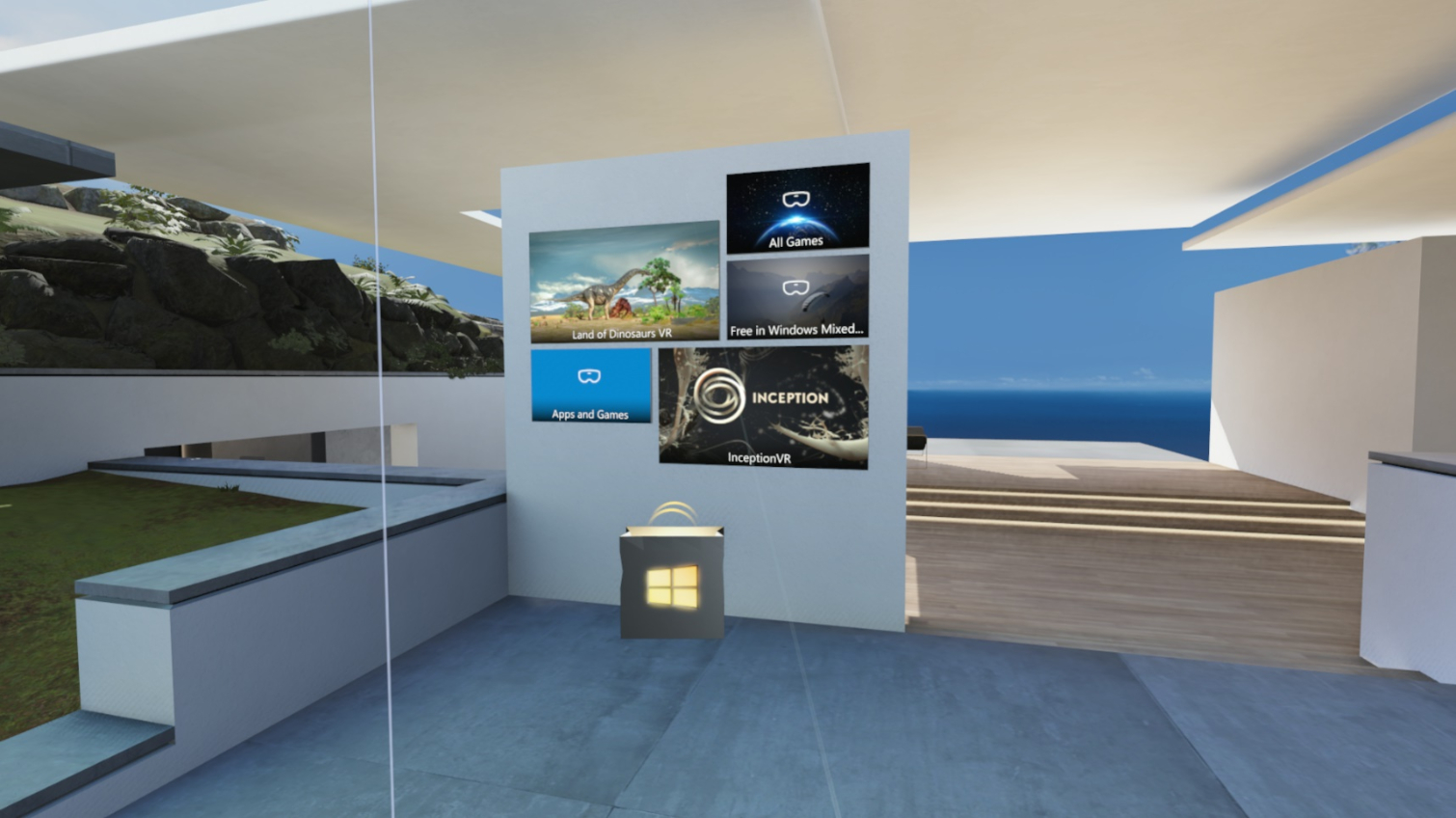
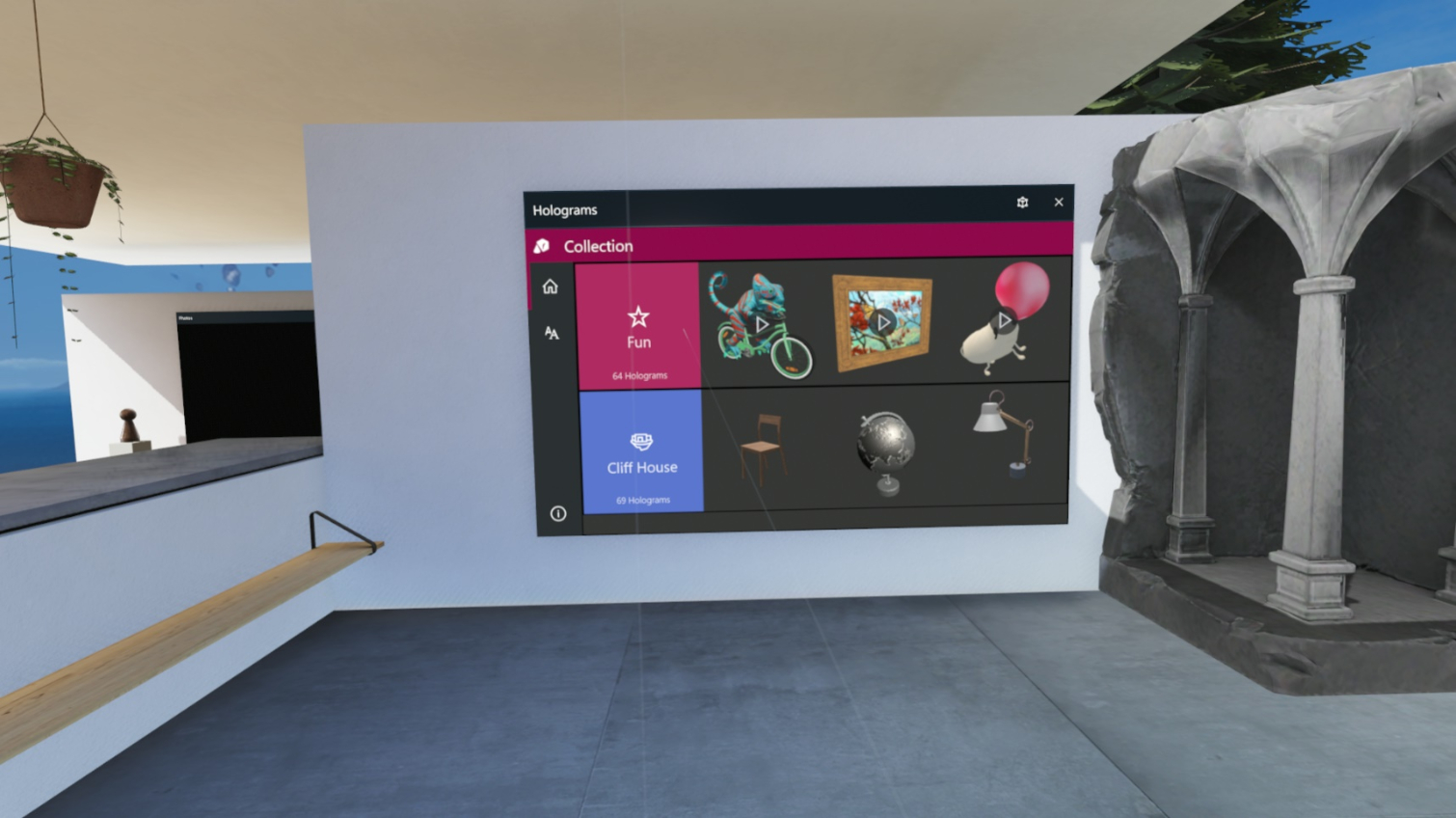
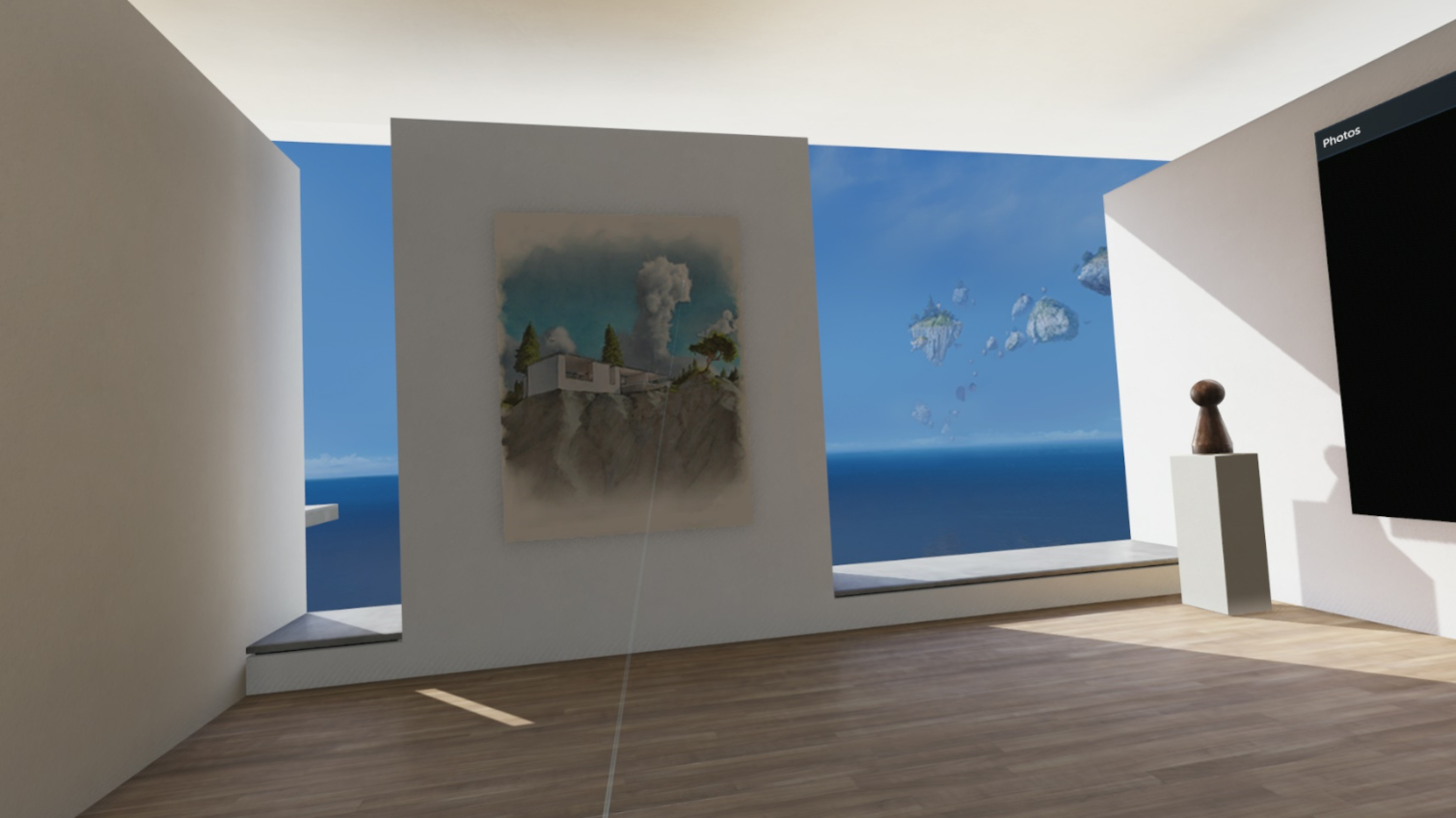
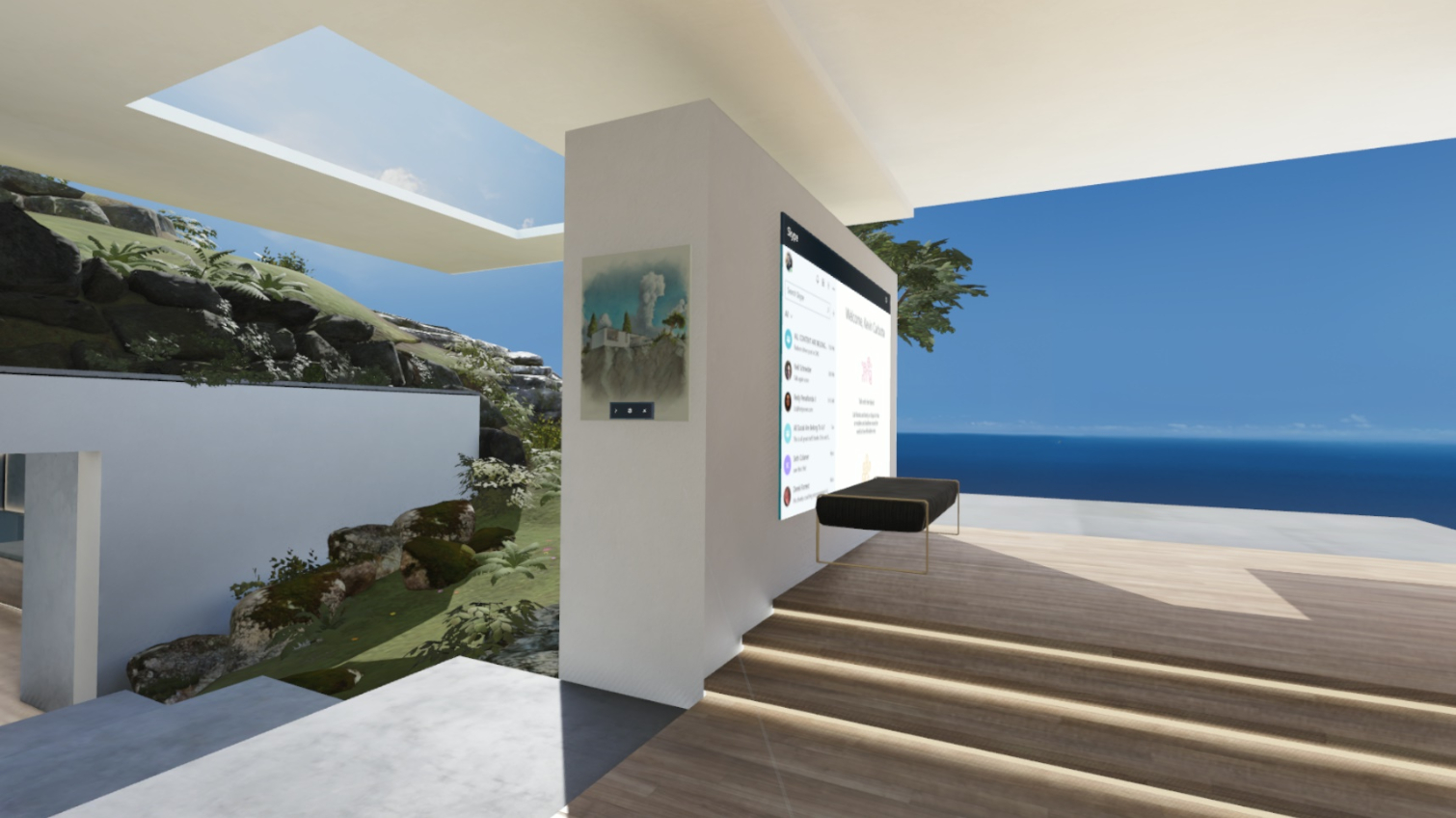
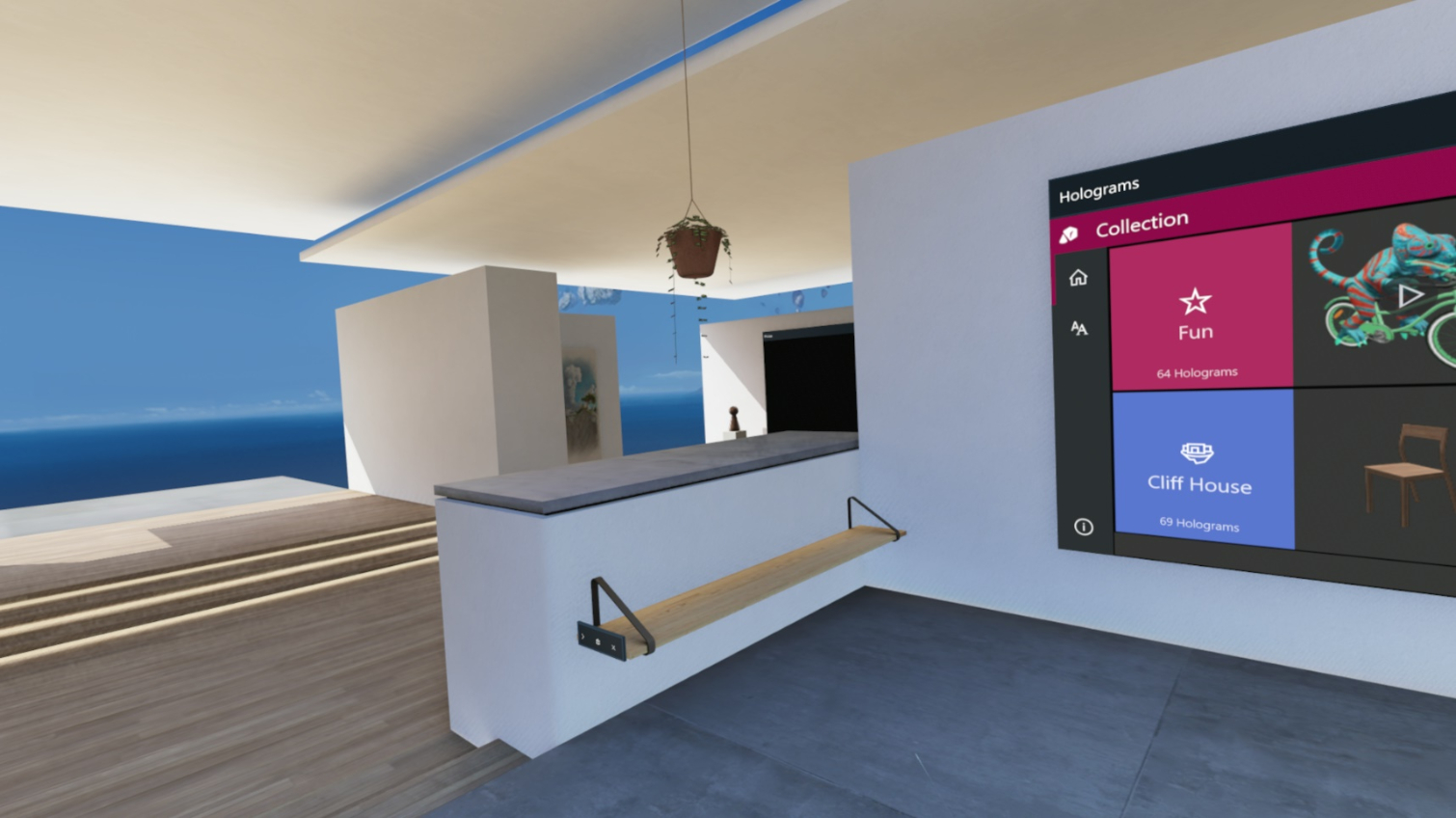
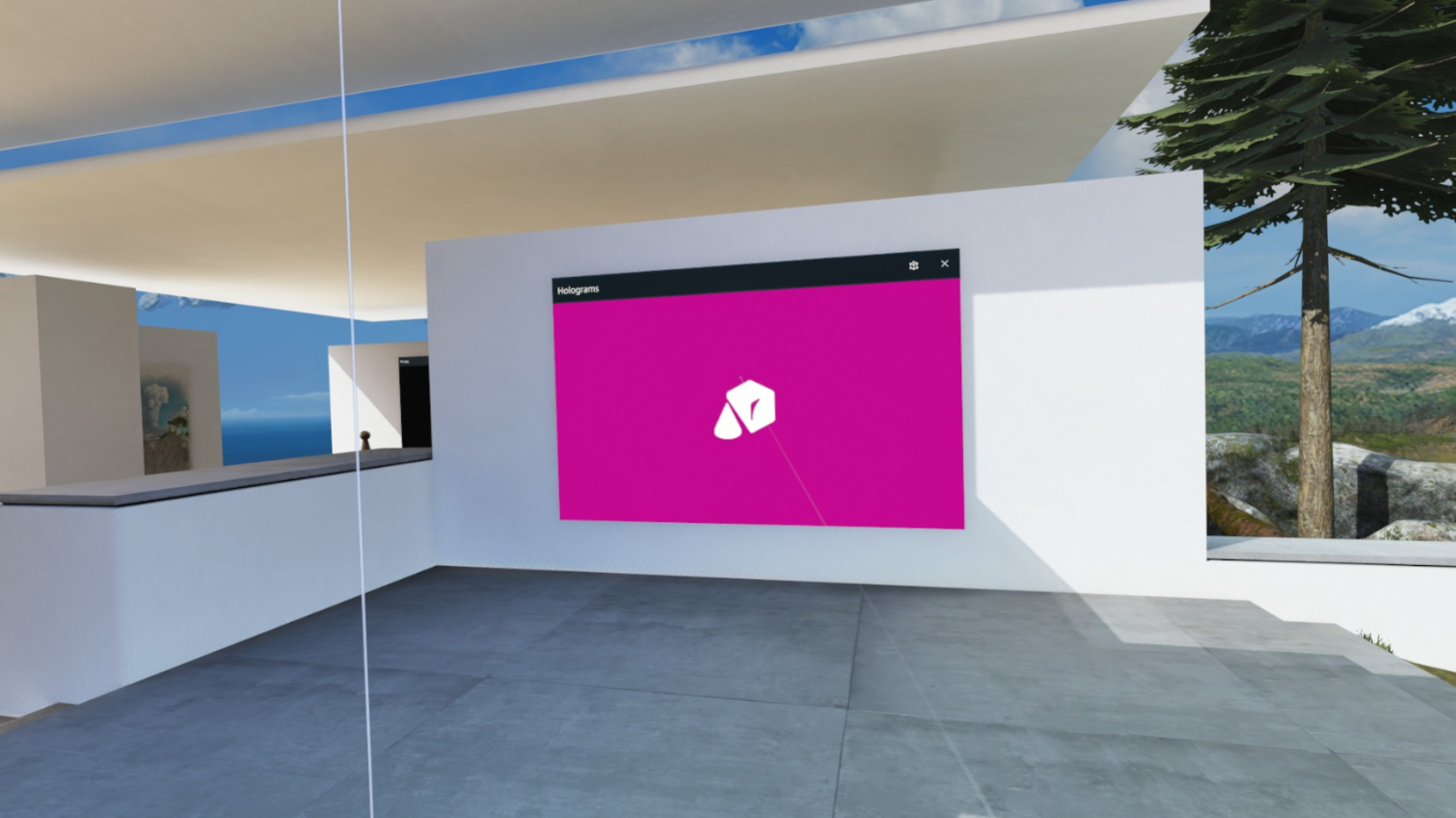
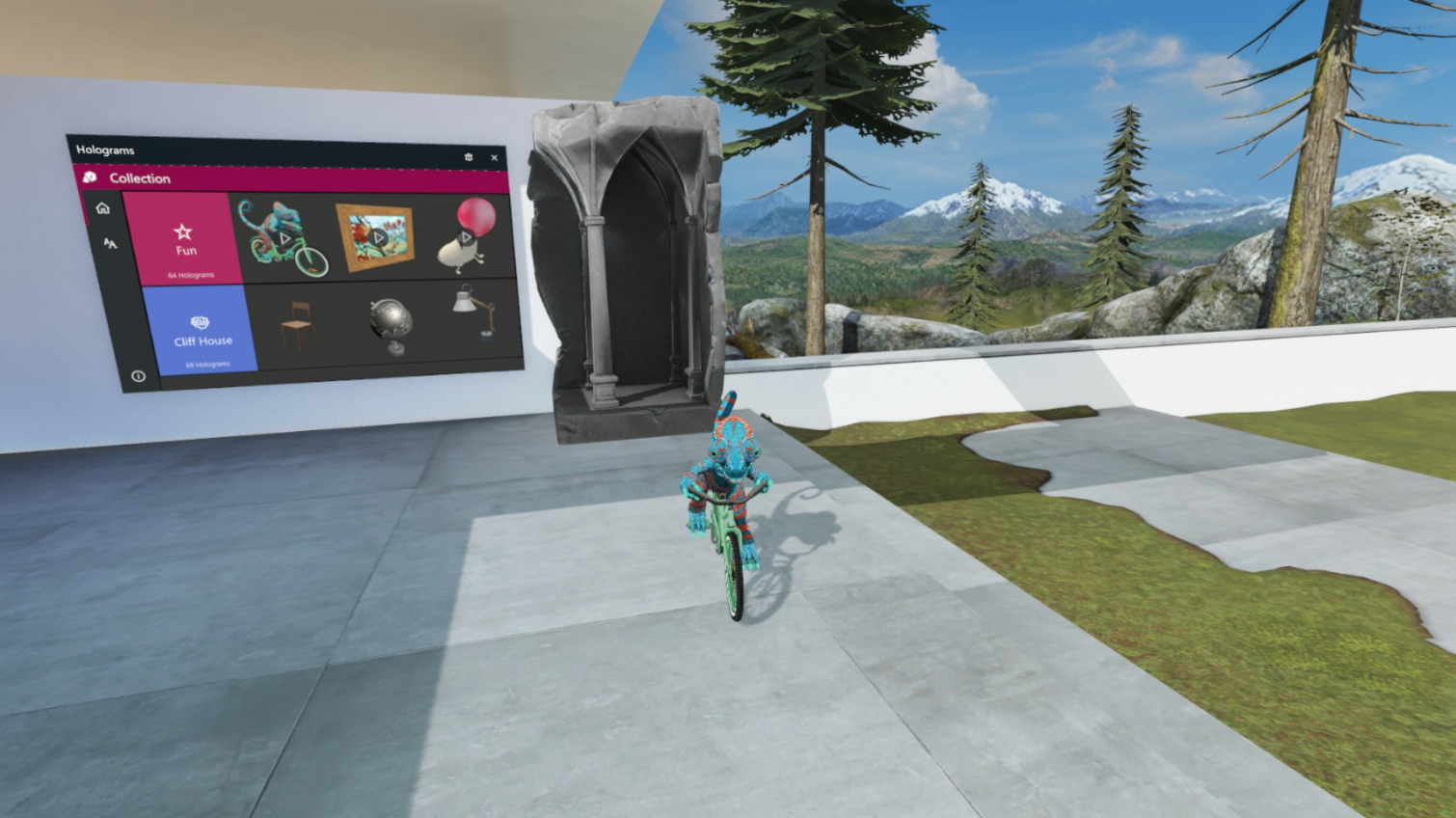
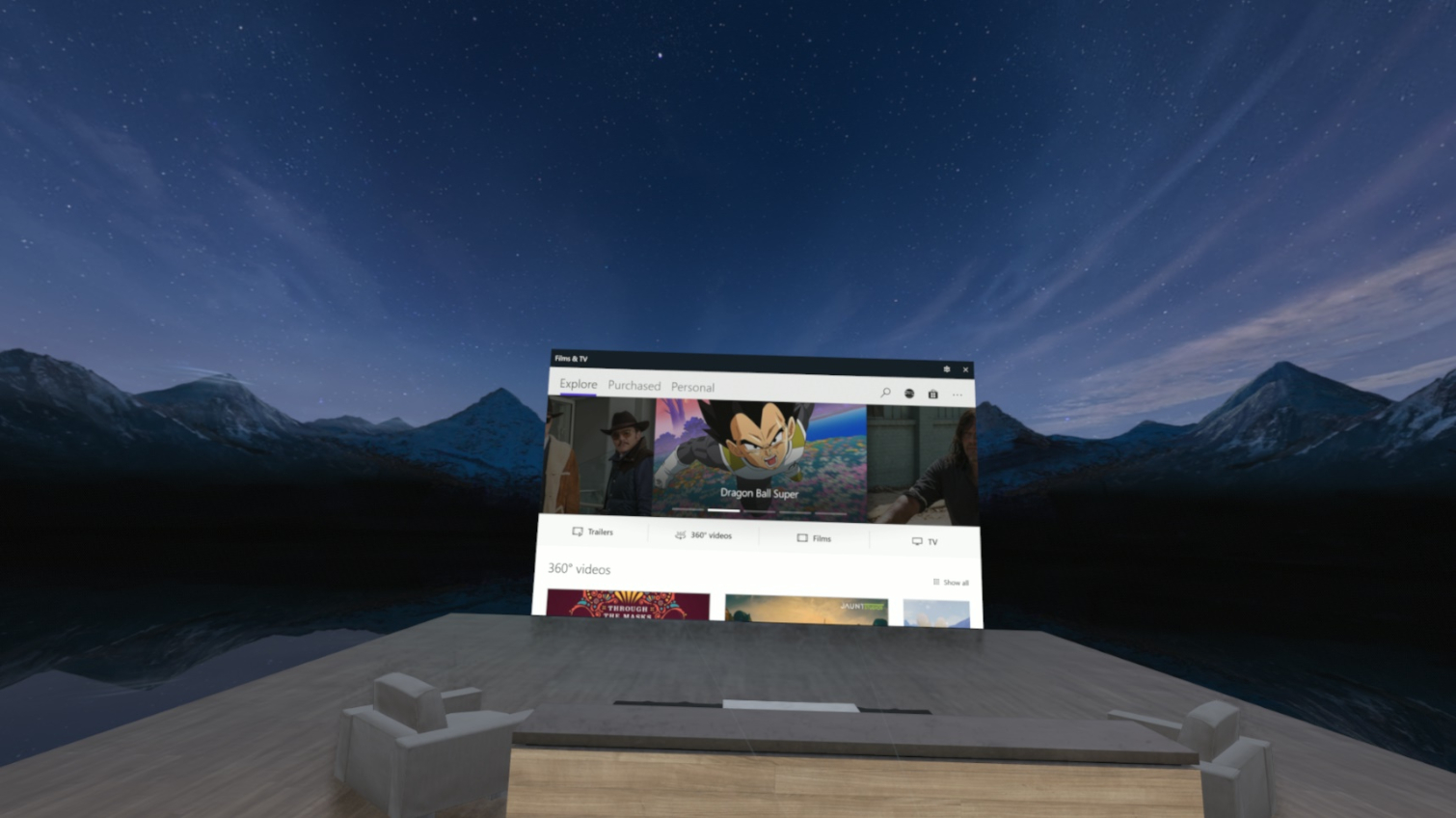

We didn’t bother renting any movies, but we did watch a few trailers. The image that Acer’s WMR Headset produces is acceptable for short clips, but we're not sure we'd enjoy it over a couple of hours. Microsoft designed this space to resemble what you'd find in a high-end home theater. It's not as inviting as a real theater, though, mostly because it can't be shared with anyone. You can make the room a bit more interesting by opening the walls to reveal night sky behind the screen.
Again, this experience would be better if it could be shared, and we expect that'll be possible in the future. Microsoft recently acquired AltspaceVR, and it’s not hard to imagine that the company would merge AltspaceVR technology directly into Windows MR to enable group movie nights.
Get Tom's Hardware's best news and in-depth reviews, straight to your inbox.
The other side of the Beach House offers two more configurable spaces. A room on the right side of the hallway has a large screen on the wall that opens to the Windows Store games section. Clearly, Microsoft considers this the game room. However, you can use it for any task you'd like. We chose to make it a productivity space. The room on the left side of the hallway features a large window for viewing photos from your image gallery. This room has several bare walls that you can decorate or fill with app windows.
If you’re looking for a less confined workspace, you can also set up shop on the building's roof, which gives you a clear view of the ocean and shoreline.
Limited By Window Placements
We usually work with windows open across multiple monitors, so we attempted to emulate that setup by placing Skype on the left, a browser window on the right, and OneNote in the center. But with three windows active, we started to see a problem. The space around us quickly filled up because we had to place the windows within a foot or two from our face, or the screens had to be rather large so that we could read them.
To counter this, we tried placing windows above and below us in ways that would accommodate a quick glance. This didn’t work well, though, because we couldn’t place the app windows where we wanted. Microsoft doesn’t facilitate fine-tuned control over the angle at which apps appear. The windows instead snap to wall surfaces, which interferes with configuring a perfect 3D workspace.
We wanted to give the Acer WMR Headset and Microsoft's platform a fair chance, so we tried using it to write our review. Typically, that'd involve Microsoft Word. But to our dismay, the company's own Office suite isn't one of the 20,000 UWP apps with Windows MR support. So much for getting your work done in a WMR headset.
We spoke to Microsoft about the lack of Office support and, to our surprise, we learned that it should be working. Microsoft designed Windows MR to support all UWP apps natively, without the need for an update from the developer. Company reps told us that they're aware of a bug in the Windows Store that prevents you from seeing all available apps when you’re in the headset, including those in Microsoft’s Office suite. The company is working on a solution.
Without access to Word, we attempted to write the article in OneNote, which proved futile for such a long story. You could easily take a few short notes, but OneNote just isn't suitable for long-form documents. It is possible to use Google Docs within Windows MR, but you must do that from Microsoft’s Edge browser. There is a UWP Google app that lets you access Gmail, Google Drive, and your Google Calendar, but it doesn’t include access to Google Docs.
Some day, we imagine you'll be able to perform a full day's work within Microsoft's mixed reality environment. Access to more than 20,000 UWP apps in WMR is a good start. But the app selection currently comes up short.
MORE: Best Virtual Reality Headsets
MORE: All Virtual Reality Content
MORE: Virtual Reality Basics
Current page: What You Can (And Can’t) Do With Windows Mixed Reality
Prev Page A Simple Setup Process Next Page ConclusionKevin Carbotte is a contributing writer for Tom's Hardware who primarily covers VR and AR hardware. He has been writing for us for more than four years.
-
steve15180 I realize the article has a certain lead time. However, when the price dropped like a rock on these headsets last week, that changed the whole conclusion of the article. Is itReply
really that difficult in an online publication to update pricing before publishing? Not
the first time I've seen pricing off on these articles. -
jpe1701 I have the HP hmd and I really like it. Are all of the controllers the same for wmr? Mine fit my hand well but as you say they don't inspire much confidence that they will last.Reply -
kcarbotte Reply20647180 said:I realize the article has a certain lead time. However, when the price dropped like a rock on these headsets last week, that changed the whole conclusion of the article. Is it
really that difficult in an online publication to update pricing before publishing? Not
the first time I've seen pricing off on these articles.
The price didn't drop. Amazon is selling them at a huge discount, but if you look at Microsoft's website the price hasn't dropped for any of them.
https://www.microsoft.com/en-us/windows/windows-mixed-reality -
Sakkura Reply20649878 said:20647180 said:I realize the article has a certain lead time. However, when the price dropped like a rock on these headsets last week, that changed the whole conclusion of the article. Is it
really that difficult in an online publication to update pricing before publishing? Not
the first time I've seen pricing off on these articles.
The price didn't drop. Amazon is selling them at a huge discount, but if you look at Microsoft's website the price hasn't dropped for any of them.
https://www.microsoft.com/en-us/windows/windows-mixed-reality
Amazon is a much bigger store than Microsoft. And this is not the first time the price has dropped either. $400 is just a technicality, the practical price for the headset is under $300 (as are the other Windows MR headset, apart from the much better Samsung Odyssey model).
On another note, I think you should have put more emphasis on the lack of integrated audio. You're forced to fiddle with a separate audio headset, with its own extra cord flopping around, and often physically interfering with the VR headset. It's really a major downside compared to the Samsung Odyssey, Oculus Rift, and Vive + deluxe headstrap upgrade. -
cryoburner Reply
Yep, WMR headsets have been commonly available under $300 for a while. Sure, the MSRP might not have officially dropped, but the headsets from Acer, Dell, Lenovo and HP are all available in this price range online. In fact, some have gone on sale for under $250 at times. The Oculus Rift getting permanently discounted to $400 has made it necessary for these headsets on a less established platform to sell for less, particularly since most of them don't do much to be distinct from one another. I'm sure the high price of graphics cards hasn't helped either. It's undoubtedly hurting sales of the Rift and Vive too, but the higher resolution of these HMDs means even higher-end hardware is required for gaming, which is undoubtedly still their main draw.20650111 said:And this is not the first time the price has dropped either. $400 is just a technicality, the practical price for the headset is under $300 (as are the other Windows MR headset, apart from the much better Samsung Odyssey model).
It might be worth at least mentioning in the conclusion that it may be possible to find the headsets for well under retail. That could change of course, if adoption of the platform were to really pick up, but I think the main thing selling them currently is their lower price. -
SWKerr This is a pretty weak review especially considering that it is months after release. The cost of the actual Windows MR headsets has been between $200-300 for more than a month. Not mentioning this fact makes the conclusion misleading at best.Reply
I find it odd that you did not delve into the fact the Windows store has very few games and that you really need to use the Steam store for gaming. (Which is what 95% of people want these things for.) It would have been very helpful had you talked about this and mention some potential game compatibility limitations. Personally I have found the MR headsets work very well for every game I have tried but since they are not written for MR you are often looking at a Vive controller and guessing about how controls are mapped.
Having used all available VR headsets at this point, I actually like the Windows MR the best. It is about the ease of setup. You do not end up with a bunch of wires running everywhere for the tracking and unless you have a large dedicated room for VR this is a big deal. The tracking may not be quite as good as a perfect setup of the competitors but it is functionally really good.
Video cards: VR reviews should mention the current state of decent video cards at this time. These things will be very disappointing on anything less than a GTX 1060 6GB or RX 580 8GB. But...getting you hands on one is unlikely at any reasonable price point.
Controllers: The reference controller could be better ergonomically but they are not uncomfortable to use for long periods of time. (Samsung actually made a better version for their headset combo.) What I find nice about the controller is that becase they have both the touch pad and stick inputs you can generally play both Vive and Rift games. The controllers are interchangeable across all the headsets and I expect someone to come out with a better aftermarket controller at some point.
Really the Windows MR headsets are a good entry point for VR. They would not be good value at $399 but they are nowhere close to that price point. -
kcarbotte Reply20651505 said:This is a pretty weak review especially considering that it is months after release. The cost of the actual Windows MR headsets has been between $200-300 for more than a month. Not mentioning this fact makes the conclusion misleading at best.
I find it odd that you did not delve into the fact the Windows store has very few games and that you really need to use the Steam store for gaming. (Which is what 95% of people want these things for.) It would have been very helpful had you talked about this and mention some potential game compatibility limitations. Personally I have found the MR headsets work very well for every game I have tried but since they are not written for MR you are often looking at a Vive controller and guessing about how controls are mapped.
Having used all available VR headsets at this point, I actually like the Windows MR the best. It is about the ease of setup. You do not end up with a bunch of wires running everywhere for the tracking and unless you have a large dedicated room for VR this is a big deal. The tracking may not be quite as good as a perfect setup of the competitors but it is functionally really good.
Video cards: VR reviews should mention the current state of decent video cards at this time. These things will be very disappointing on anything less than a GTX 1060 6GB or RX 580 8GB. But...getting you hands on one is unlikely at any reasonable price point.
Controllers: The reference controller could be better ergonomically but they are not uncomfortable to use for long periods of time. (Samsung actually made a better version for their headset combo.) What I find nice about the controller is that becase they have both the touch pad and stick inputs you can generally play both Vive and Rift games. The controllers are interchangeable across all the headsets and I expect someone to come out with a better aftermarket controller at some point.
Really the Windows MR headsets are a good entry point for VR. They would not be good value at $399 but they are nowhere close to that price point.
"This is a pretty weak review especially considering that it is months after release."
I'm sorry you feel that way. I'm not going to get into the politics behind the delay in publishing, but the review was written before Christmas.
"The cost of the actual Windows MR headsets has been between $200-300 for more than a month."
Amazon is the only place that I've seen the headset discounted. Acer did no drop the price, and Microsoft didn't step in to subsidize the cost.
When the price comes down at all retailers, we'll update the review. Until then, I stand by what I wrote. Acer wants $400 for the package, and unless you buy from Amazon, that's what you'll pay.
"I find it odd that you did not delve into the fact the Windows store has very few games and that you really need to use the Steam store for gaming."
Page 8 discusses that briefly. What would you suggest should be added?
"Video cards: VR reviews should mention the current state of decent video cards at this time."
We have written a lot about the current state of the graphics card market. I don't believe that has any place in a VR review because it's a temporary state of the market. Yes, it sucks to buy into VR right now because of GPU prices, but that doesn't affect the merit of the headset itself, nor the platform it runs on.
"Controllers: The reference controller could be better ergonomically but they are not uncomfortable to use for long periods of time."
Maybe for you, but my hands cramped up within 10 minutes of using them, and several people who tried it had similar complaints. Not everyone will have that problem, but the controllers were not designed in such a way that most people won't have problems.
As for the Samsung controllers-- I haven't received a sample from Samsung yet, so I can't say much about that. I used Samsung's controllers for about 10 minutes and they are much better ergonomically. -
Heliosurge Reguarding no integrated audio; have you considered one of the many wireless headset options? Many bluetooth ones also require no headband.Reply
Steam? Did you miss the "Early Access support" support in steam. Or the fact that if you are a steam user; we would see a new headset icon that represents WMR.
Reviews usually go with suggested retail price not a retailer's sale. Now i do agree that a small addition mentioning that Amazon is having a sale on them.
But all in all a great review! -
Heliosurge KevinReply
While Intel's igpu peeformane was not good are you able to run some tests on Amd's Apus? Fm2+ & Ryzen Apus would be interesting if they yeild better results.
